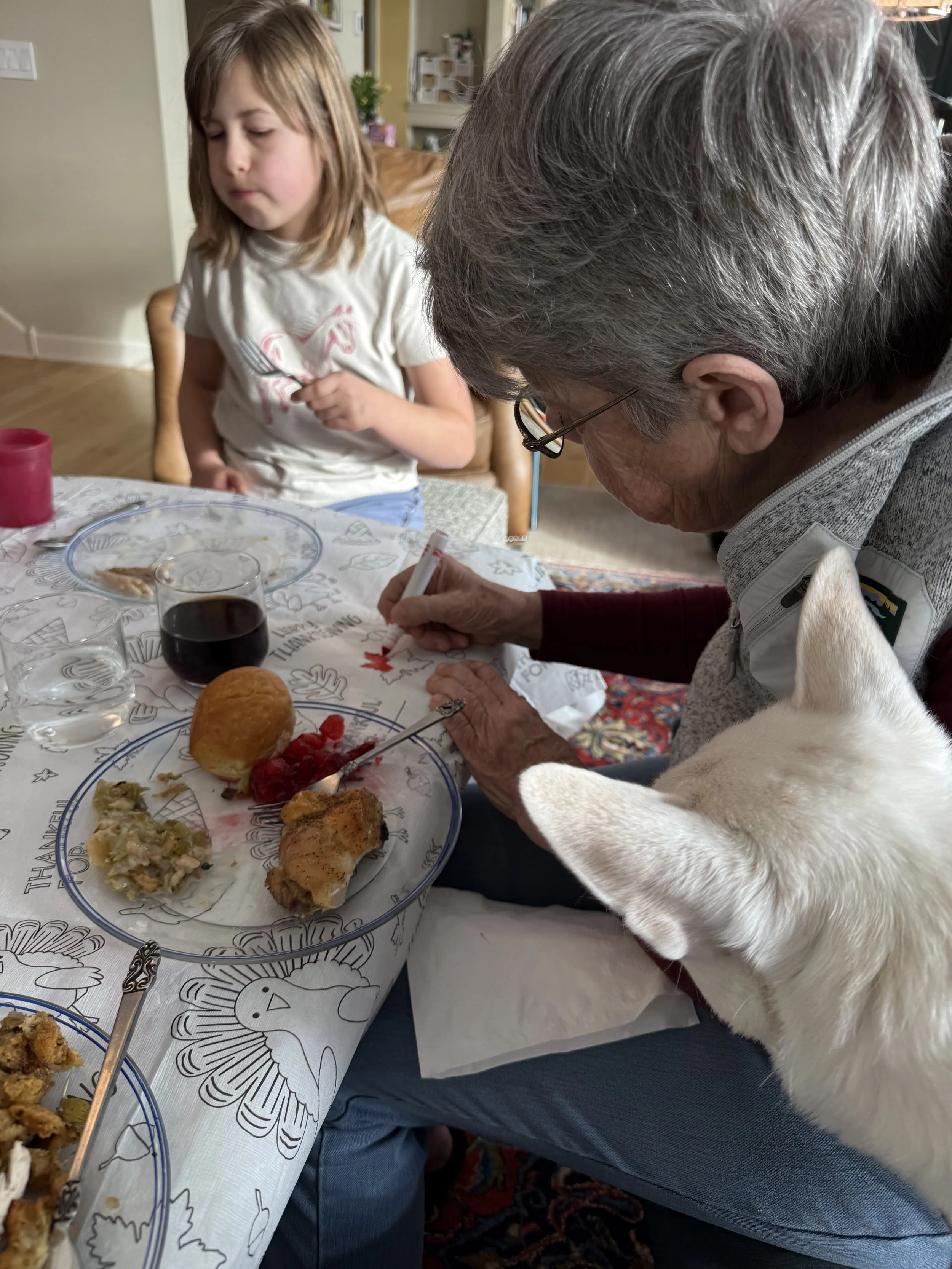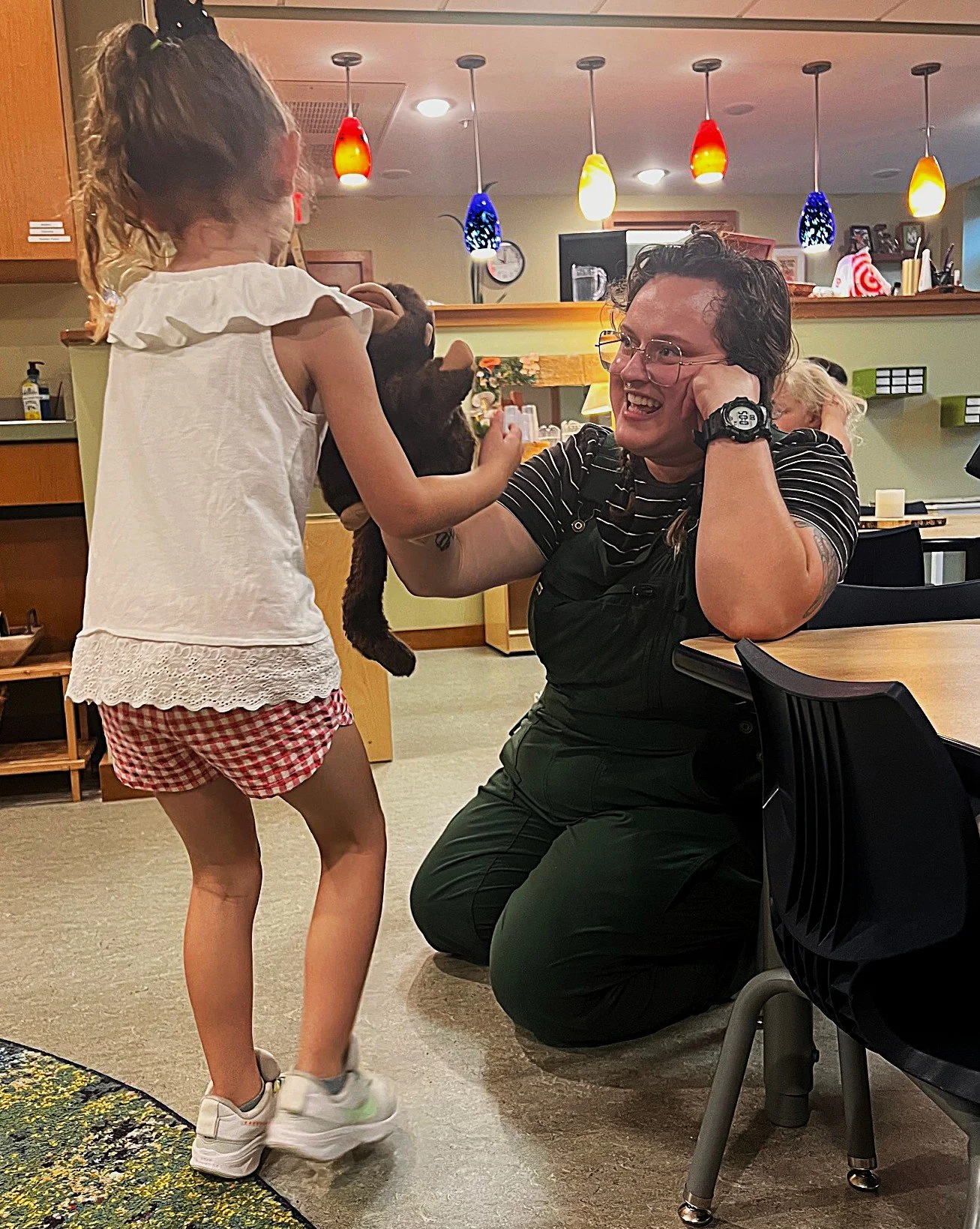All Seasons Blog
Little Learners, Big Adaptations: How Toddlers Learn to Thrive in New Seasons
At the beginning of the year, many children arrived holding tightly to their grown-up’s hand, unsure of what the day might bring. Yet, day by day, we’ve watched them adapt. They begin to recognize their teachers as trusted caregivers, find comfort in familiar classroom rhythms, and build relationships with their peers through play, laughter, and even the occasional disagreement. These moments, both joyful and challenging, are all part of how children learn to navigate the world.
A Seat At The Table: Making Room For Elderly Adults At Our Family Gatherings
This was my realization: people - myself included at one time - have become accustomed to relegating older people to the isolated and blurred edges of social events and we don’t even realize we’re doing it. It’s through working at All Seasons, and interacting with seniors on a regular basis, reacquainting myself with their humanity, holding my mother’s hand as she enters this chapter of her life that I’ve become more aware of it. I know that no one in my family, any family, would do this intentionally. I thought I’d share the list of ways to include and connect with the elders in my family in hopes that you are inspired to find ways to do so in your own holiday gatherings.
Learning and Growing Together in Mixed-Age Classrooms
One unique aspect of our program at All Seasons Preschool is our use of mixed-age classrooms. Instead of separating children strictly by age, we group 3-, 4-, and 5-year-olds together. This is an intentional choice grounded in research and experience.
One Magical Monkey
As someone who has had careers in theatre and early childhood education, I’ve seen firsthand the marvel and wonder puppets bring to children. Puppets are magical catalysts for storytelling, providing a physical anchor to imagination. To children, they are real beings who ignite joy.
Better Together
There is something truly remarkable about the energy created when multiple seniors come to visit the preschoolers on their own territory at the Open House. The children have more confidence and comfort - this is their space, after all! - and as the experts, they gleefully show the seniors around, introduce them to their favorite toys, and ask, without much hesitation, for them to read a book on the sofa. The energy the seniors bring with them is pure enthusiasm. They come prepared to ‘oooh’ and ‘aaaah’ over the children, the classrooms, the activities, and the trinkets, art projects, and playdough creations the preschoolers bring them. It is a special thing, and it serves both populations beautifully.
Joy In The Little Things
“The magic in your childhood wasn’t because you were a child. It was because you were living in the present.”
The Heart Of All Seasons
The impact of preschool on a child’s future education has been well documented. But what about the impact on their hearts?
This year, two of my former students returned to All Seasons, one to inspire preschoolers in the Art Studio, and one to visit the senior residents and their old classrooms…
Not A Child, But YOUR Child
Our teachers know young children. They will know their class as a group. Most importantly, our teachers will know your child.
Play Ideas For Summer Days
We are mere days away from our summer breaks! Perhaps you, like me, are feeling both excited and a little apprehensive about all the time we parents will now have to fill with our kids on our own! Before any panic sets in, I’d love to share some of the secrets of how teachers at All Seasons set children up for success when we offer opportunities for play. As with most secrets about life, the play we organize at school is pretty simple when you get down to it.
Lessons in Aging and Love
In witnessing my children’s empathy and understanding, I am reminded that the seeds planted by All Seasons have blossomed into a genuine respect and compassion for elders - qualities that will serve them, and those around them, for a lifetime. Even as we navigate the uncertainties of Alzheimer’s, I am grateful that my children approach each day with open hearts and a willingness to help, making our family’s journey one of connection, resilience, and hope.
Creating the Conditions for “Flow”
Have you ever experienced a time when you’ve been so deeply immersed in an activity that you were not aware of the passage of time? When you lost all self-consciousness and were entirely focused on what was in front of you?











